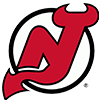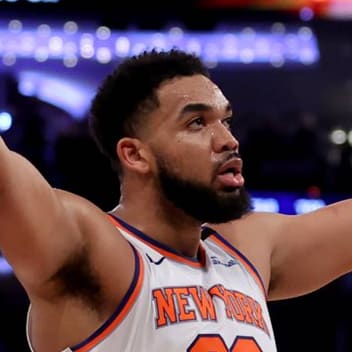Injuries can sometimes create some difficult decisions in fantasy basketball. In order to add the hot name from the waiver wire, fantasy managers might be left with a tough choice on who to drop. Let's discuss five players to consider dropping to free up a roster spot.
Dillon Brooks, Memphis Grizzlies
(56 percent rostered)
It feels odd to put a player on this list who has averaged at least 16.2 points in each of the last three seasons. During that span, Brooks also had two seasons in which he averaged at least 1.9 three-pointers. He hasn't tanked offensively this season at 15.6 points and 1.9 three-pointers per game, and he is still playing a lot by logging 31 minutes a night.
The problem with rostering Brooks in fantasy is that he does little outside of the scoring department, averaging 3.5 rebounds, 2.7 assists, 0.8 steals and 0.2 blocks. Also, he is shooting an abysmal 39.4 percent from the field. With the Grizzlies' health situation improving, Brooks has only provided 9.8 points and 1.1 three-pointers over his last nine games. For those who play in category leagues, his scoring contributions might not be enough to offset his deficiencies elsewhere.
Kelly Olynyk, Utah Jazz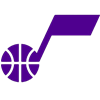
(50 percent rostered)
Olynyk found himself in a favorable spot to begin the season. The Jazz had a hole to fill at center after trading away Rudy Gobert, and they brought in Olynyk to take over as the starter. Although his numbers weren't eye-popping,
Injuries can sometimes create some difficult decisions in fantasy basketball. In order to add the hot name from the waiver wire, fantasy managers might be left with a tough choice on who to drop. Let's discuss five players to consider dropping to free up a roster spot.
Dillon Brooks, Memphis Grizzlies
(56 percent rostered)
It feels odd to put a player on this list who has averaged at least 16.2 points in each of the last three seasons. During that span, Brooks also had two seasons in which he averaged at least 1.9 three-pointers. He hasn't tanked offensively this season at 15.6 points and 1.9 three-pointers per game, and he is still playing a lot by logging 31 minutes a night.
The problem with rostering Brooks in fantasy is that he does little outside of the scoring department, averaging 3.5 rebounds, 2.7 assists, 0.8 steals and 0.2 blocks. Also, he is shooting an abysmal 39.4 percent from the field. With the Grizzlies' health situation improving, Brooks has only provided 9.8 points and 1.1 three-pointers over his last nine games. For those who play in category leagues, his scoring contributions might not be enough to offset his deficiencies elsewhere.
Kelly Olynyk, Utah Jazz
(50 percent rostered)
Olynyk found himself in a favorable spot to begin the season. The Jazz had a hole to fill at center after trading away Rudy Gobert, and they brought in Olynyk to take over as the starter. Although his numbers weren't eye-popping, he put up 12.9 points, 5.0 rebounds, 3.2 assists, 1.2 steals and 1.5 three-pointers over his first 32 games, all while shooting 52.7 percent from the field and 84.5 percent from the free-throw line.
As good as Olynyk was, injuries have derailed his campaign. Not only was he forced to miss 12 games since around the middle of December, but his absence opened up added playing time for rookie Walker Kessler. Kessler has stood out as a starter, so much so that the Jazz said he will hold onto the role even with Olynyk back in the fold. In Olynyk's first game back Saturday, he played just 15 minutes in a start at power forward against the Mavericks. The Jazz might have been easing him back into action, but starting alongside Kessler doesn't put him in as favorable of a position. There is also a chance that Olynyk is moved at the trade deadline, possibly landing him a bench role on a contending team. That would deal yet another blow to his already declining fantasy value.
Alex Caruso, Chicago Bulls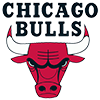
(45 percent rostered)
It's been a disappointing season for the Bulls, who have a record below .500 that has them fighting to grab one of the final spots in the play-in tournament. They really miss Lonzo Ball (knee), who is trending toward missing this entire season. Caruso was expected to be a vital role player for them, and he has bounced around from the starting five to coming off the bench. He was limited to 41 games last season, part of which can be attributed to his high-energy style of play that exposes him to more injuries. To keep him healthy, the Bulls have played him three fewer minutes per game this season.
The good news for the Bulls is that Caruso has remained healthy enough to appear in 44 games. The bad news for fantasy managers is that he has been almost non-existent offensively, averaging 5.7 points per game to go along with his 11.0 percent usage rate. His defensive contributions have been there with 1.7 steals per game, but fantasy managers who don't need help in that area can move on from Caruso when you add his averages of 3.0 rebounds and 3.3 assists to his modest offensive contributions.
Tim Hardaway Jr., Dallas Mavericks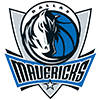
(44 percent rostered)
Despite the Mavericks not having a loaded roster around Luka Doncic, Hardaway can't seem to get going offensively. He is only providing 13.6 points per game, which would be his lowest mark since the 2015-16 season when he was still with the Hawks. On the bright side, much of his scoring has come from behind the arc, leaving him to average 2.7 three-pointers per game.
The problem from a fantasy perspective is that Hardaway isn't doing much outside of hitting three-pointers right now. He is shooting just 38.2 percent from the field, and his 75.9 percent shooting from the charity stripe isn't all that impressive, either. That's on top of him averaging only 3.5 rebounds, 1.6 assists and 0.8 steals per game. Unless you're desperate for three-pointers, Hardaway doesn't provide enough contributions overall to be worth rostering in most leagues.
Caris LeVert, Cleveland Cavaliers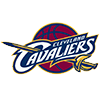
(43 percent rostered)
If the Cavaliers are going to improve their chances of making a deep run in the playoffs, a glaring hole that they could upgrade is at small forward. LeVert has spent time as a starter, but he has spent more time of late coming off the bench. As a member of the second unit, he has averaged only 9.9 points, 3.3 rebounds and 2.6 assists over 24 games.
In addition to LeVert providing underwhelming counting stats while coming off the bench, he is only shooting 41.1 percent from the field and 70.5 percent from the free-throw line for the season. He has struggled with overall efficiency despite shooting a career-high 37.4 percent from behind the arc. If the Cavaliers do bring in a small forward to further cement LeVert in a role with the second unit, it's difficult to justify rostering him instead of picking up someone on the waiver wire who is primed to take on an expanded role because of an injury to someone else on their team.



















